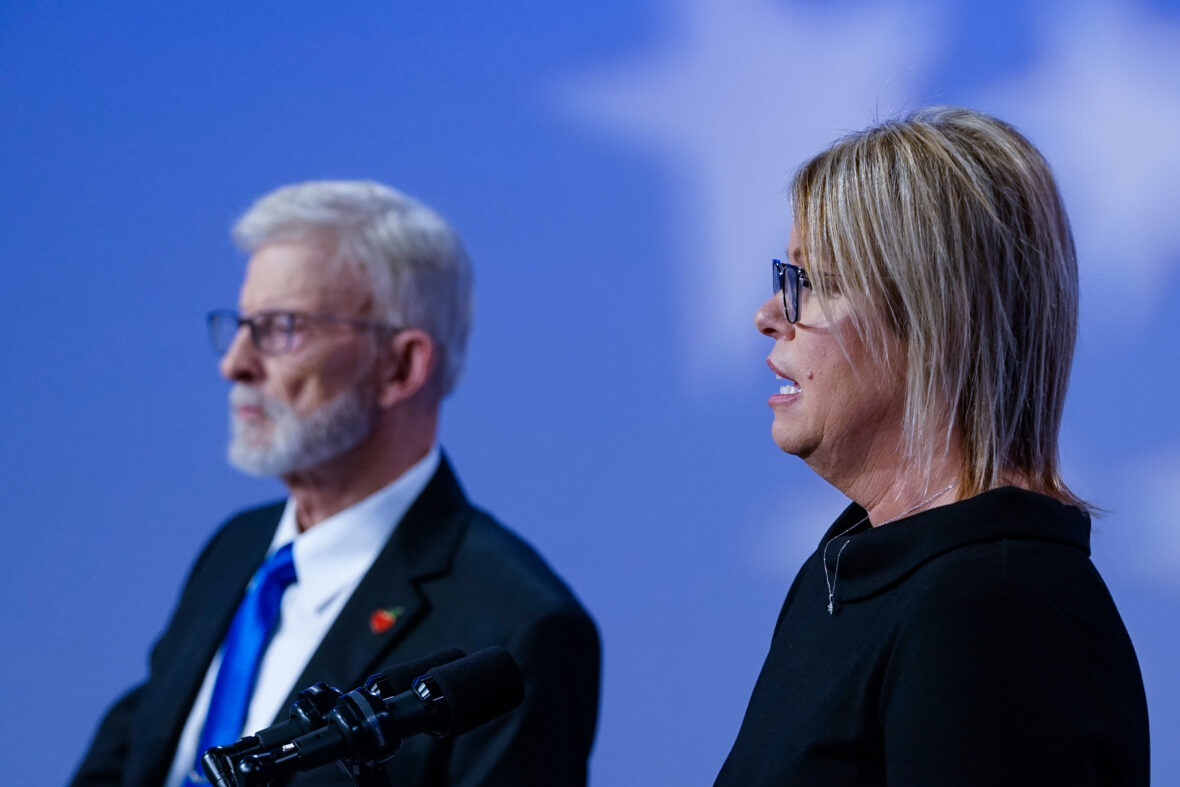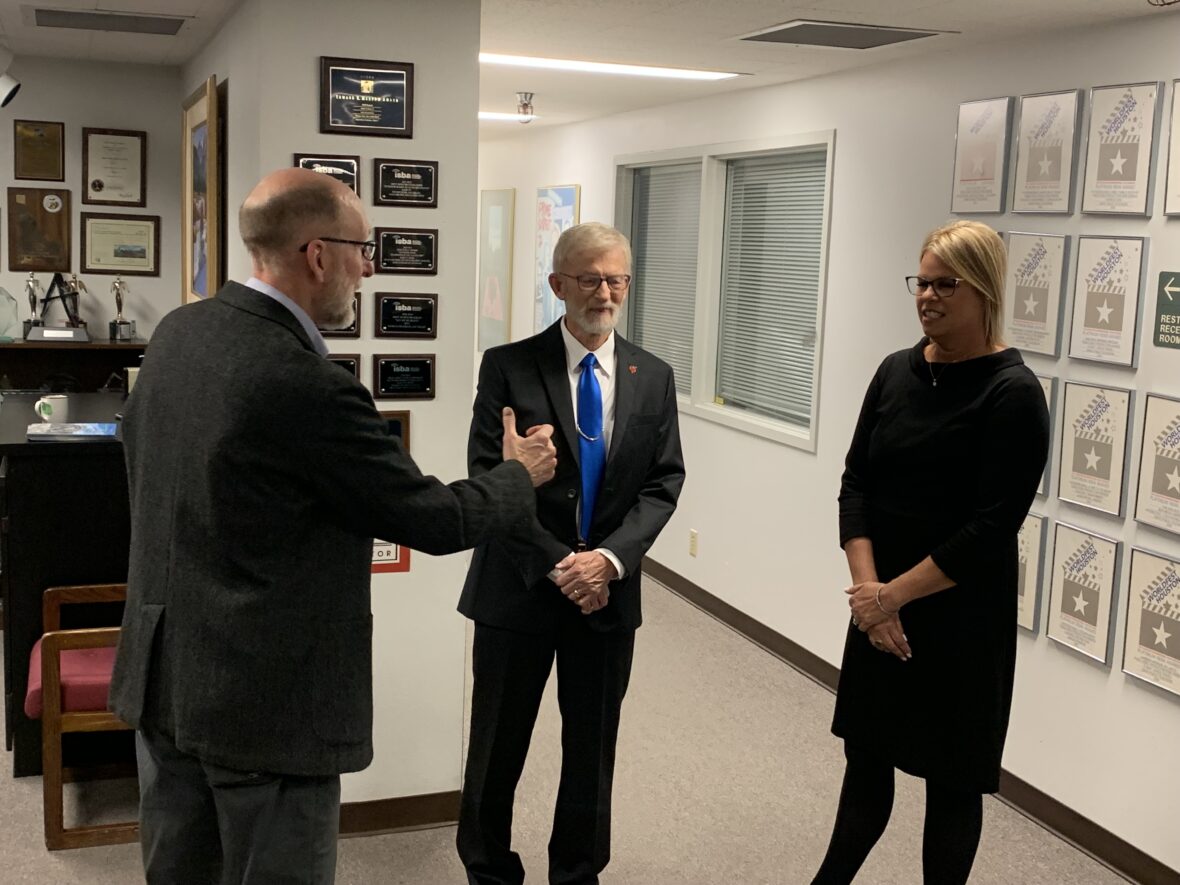
State superintendent’s candidates Republican Debbie Critchfield and Democrat Terry Gilbert clashed over a variety of education policies, including school choice, funding and immunization rates during Monday night’s Idaho Public Television debate.
Gilbert, a former teacher, jabbed at Critchfield’s lack of classroom experience, while she flexed her former role as president of the State Board of Education, and said her experience creating and implementing policy fit the “assignment” of the statewide position.
The two are vying to replace superintendent Sherri Ybarra, who’s occupied the role for nearly eight years, but was ousted in the GOP primary.
The Nov. 8 general election is two weeks away.
Monday’s debate saw Critchfield and Gilbert align over their desires to support teachers, improve literacy rates and protect public schools, but sparred over school choice, parental rights, funding and leadership approach.
EdNews reporter Kevin Richert and James Dawson of Boise State Public Radio questioned the candidates; IPTV’s Melissa Davlin moderated.

The debate began with a discussion of the recently released ISAT scores, which showed more than two-thirds of 10th-graders scoring below proficient in math. The candidates also discussed low literacy rates and and the recently released NAEP scores, which dipped below a decade-long threshold.
While the candidates agreed more work must be done, their approaches differed.
Gilbert attributed the state’s low scores in part to Critchfield’s leadership on the State Board. He suggested schools use tutors and retired teachers in classrooms to boost student performance without burdening teachers. He also suggested a funding boost to improve literacy.
Critchfield said part of the reason she ran for superintendent was to take more action than she could on the State Board.
“There’s only so much that a volunteer, appointed person can do,” she responded to Gilbert.
The GOP candidate commended Gov. Brad Little’s focus on literacy – including a $72 million budget this year – but said math had been overlooked. She’ll look at math funding and policy implementation, she said, and reorient leadership toward the “science of reading” to equip teachers with the tools to improve literacy rates.
On school choice, Critchfield said she’d be willing to discuss a voucher system, which would allow parents to put public school funds toward non-public education. She’s heard parents’ desires for more choice in their children’s education, she said, but action would not come at the expense of public schools.
Gilbert responded with his staunch stance against vouchers, a key point of his campaign.
“If you want to kill public schools, let’s adopt a voucher program,” Gilbert said.
The Democratic candidate believes the state’s current school choice options – like charters, magnet schools, homeschooling and public schools – are sufficient.
The two also debated what to do with the $330 million the Legislature set aside for K-12 during the September special session.
Gilbert said he would split the money between educator salaries and literacy, both in math and English.
Critchfield said she would put the new funds toward career-technical training, workforce readiness, public-private partnerships, and school facilities issues.
Both candidates said they support local control when it comes to school library book selections. Gilbert said book-banning reflects a “shrinking of the American mind.”
Critchfield zeroed in on the process, saying conversations around library and classroom book collections comes down to a “gap in communication and transparency.” She said she’d support districts in creating policies and educating their communities.
On other issues:
- The candidates partially agreed over school safety and local control. Critchfield said she wants to support districts’ own school safety initiatives, and focusing on facilities and law enforcement presence in schools. Gilbert agreed, and said the conversation reflected a “sad commentary” on the country as a whole.
- Critchfield said she supported parental choice, as childhood immunization rates are falling to levels that risk herd immunity. The GOP candidate said she would support districts as they spread information about vaccines, but ultimately said parents are the primary caretakers in their children’s lives. Gilbert emphasized his support of vaccines.
- The candidates agreed that increased support for teachers is necessary to reduce shortages. Gilbert suggested Idahoans send notes to teachers to express their support. Critchfield said she wants to focus on non-financial support to help teachers navigate the added roles they’ve taken on.
- Both candidates saw a need for increased mental health resources in schools. Gilbert said Idaho should use the federal government to increase mental health access, while Critchfield suggested using public-private partnerships.
- The candidates agreed school districts should have pre-K options.
